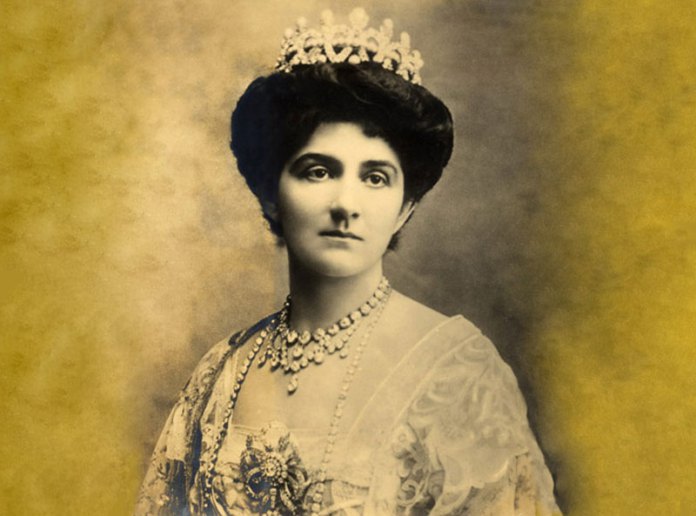
“I see you in my girlish dreams, the city of poetry and love. I feel like your daughter. I love you, second home of my heart! When I see the sea and blue mountains veiled in thick fog, beautiful castles far from my balcony, and newly born sea apparitions, I think of you, beautiful Venice!” (Jelena of Savoy)
Jelena Petrović Njegoš (Elena del Montenegro or Elena di Savoia in Italian) was the sixth child and the fifth daughter of Montenegrin Prince Nikola and Princess Milena. She was born in Cetinje on 8 January 1873. Prince Nikola decided to have Jelena baptized by the Russian Emperor Alexander II Romanov. The emperor accepted the godfathership and authorized the Russian consul from Dubrovnik, Aleksander Yorrin, to come to Cetinje, baptize her on his behalf and name her Jelena. Princess Jelena spent her childhood and early youth in her native Cetinje. She left the Cetinje court at the age of ten to then Petrograd (St. Petersburg). She was educated at the Smolny Institute, which was organized for princesses and girls from prominent European families. Even then, she showed an extraordinary talent and sense for classical music, literature, painting, and architecture. She very quickly learned to speak several European languages. At the time when Princess Jelena was a twenty-year-old girl, educated and with beautiful manners, her contemporaries described her as “high class, with hair darker than night and the eyes of a wounded doe.” While composing verses under the pseudonym Blue Butterfly in cold Petrograd, Princess Jelena had no idea that her girlish heart would find love in Venice only a few years later. Her encounter with the Italian Prince Victor Emmanuel happened on 29 April 1875 at the Venice International Art Biennale. Princess Jelena meets Savoy and Italy for the first time, and it becomes her second home. The two young people meet for the second time in Petrograd during the coronation of Nicholas II Romanov as the Emperor of Russia. Prince Victor Emmanuel and Princess Jelena Petrović got engaged in August 1896 in Cetinje. They had five children: Yolanda, Mafalda, Umberto, Giovanna and Maria.
When the 1908 earthquake destroyed the city of Messina, Queen Jelena took it upon herself to be a nurse, caring for evacuating the severely injured. Today, the largest hospital in Naples is called Regina Elena. A large monument to Queen Jelena was erected in Messina in 1960. Furthermore, one of the most beautiful streets in Rome was named after her. Due to her selfless sacrifice, Queen Jelena enjoyed wide popularity among Italian citizens, of which numerous Italian and foreign press wrote. All major European nations awarded her decorations and recognitions. In the Apennines, she earned the title of Queen Mother. After King Victor Emmanuel III died in 1947, Queen Jelena went to Montpellier, France. She devoted herself to humanitarian work and spent her spare time fishing.
She died and was buried in Montpellier in 1952. A monument to her was erected in Podgorica in 2021.